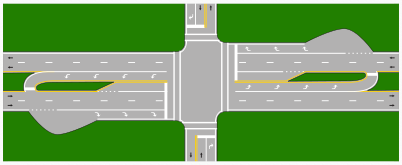How Restaurant Menus Trick You Into Spending More (video)
/This link will take you to a short interview (2:51) about the tricks of the American restaurant business.* Read over the eight notes below, and then listen to Sara Murray’s short interview with Quentin Fottrell. After that, fill in the blanks. Below is a helpful list of difficult vocabulary. Below that are the answers.
1. 28% of diners will order the same item the following week if it has been re__________d.
2. Diners will pay 12% more if an item has a ____________ name.
a. Examples: Succulent Duck, instead of just Duck
b. Cajun Chicken, instead of just Chicken
3. Higher priced items are placed where consumers will more likely _____________ them.
a. Examples: In the upper right-hand corner
b. In the lower left-hand corner
c. Inside a __________
4. Putting all _________-calorie items inside one box
5. Giving the lower-priced items _______________ names
6. Giving the higher priced, higher calorie items fancy names
7. Beware of set menus
a. Set menus are only _______________ly cheaper than buying a la carte (individually)
b. Set menus encourage buying _____________ items (like ice cream)
8. Beware of “Specials”
a. They might be ____________________’s leftovers.
b. They may not be listed with the ____________.
Vocabulary
favorite diner = your favorite place to eat out
diners = people who eat out (dine in restaurants)
sly = clever, tricky
lame description = weak or unoriginal description
succulent = juicy, moist, rich, tasty
Cajun = (spicy) ethnic cuisine from Louisiana
be boxed off = an item separated from other items by a box around it
bargain bin = a container in a department store that holds sale items
watching your weight = eating on a diet
do the math = calculate
leftovers = food left from previous day(s) that was not eaten
cautionary tales = stories with a warning
ANSWERS
1. 28% of diners will order the same item the following week if it has been renamed.
2. Diners will pay 12% more if an item has a fancy name.
a. Examples: Succulent Duck, instead of just Duck
b. Cajun Chicken, instead of just Chicken
3. Higher priced items are placed where consumers will more likely see them.
a. Examples: In the upper right-hand corner
b. In the lower left-hand corner
c. Inside a box
4. Putting all low-calorie items inside one box
5. Giving the lower-priced items simple names
6. Giving the higher priced, higher calorie items fancy names
7. Beware of set menus
a. Set menus are only slightly cheaper than buying a la carte (individually)
b. Set menus encourage buying extra items (like ice cream)
8. Beware of “Specials”
a. They might be yesterday’s leftovers.
b. They may not be listed with the price.
* Wall Street Journal (August 4, 2014)









































